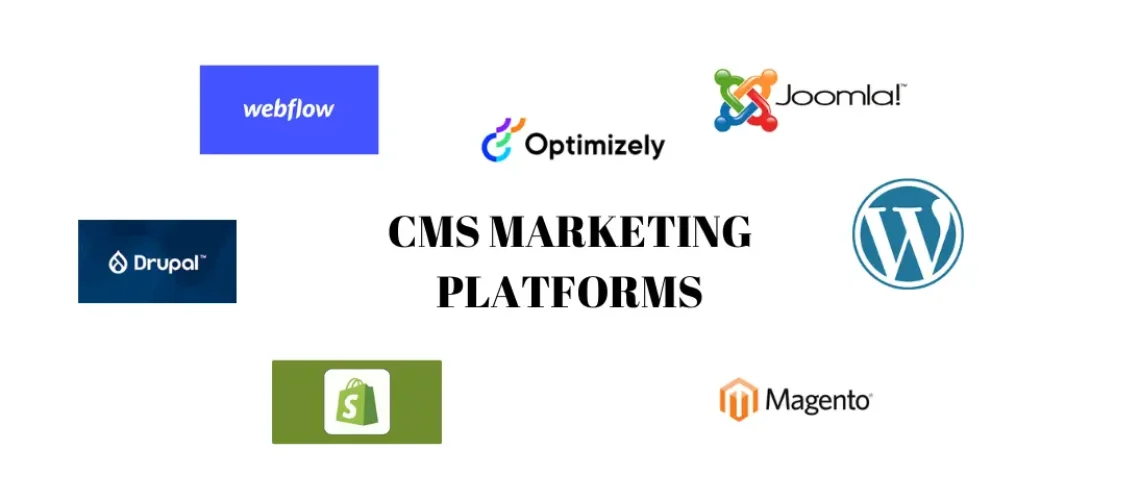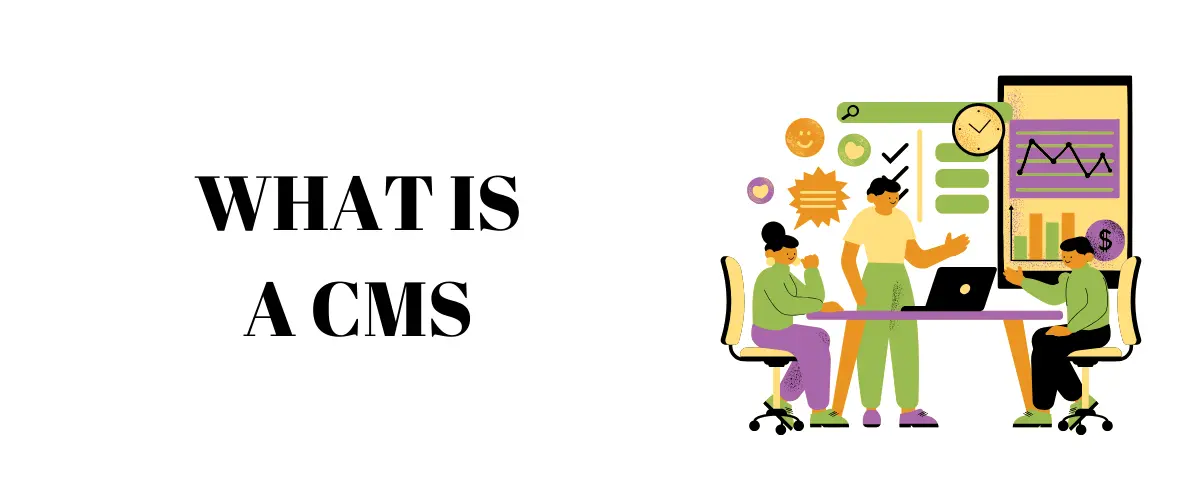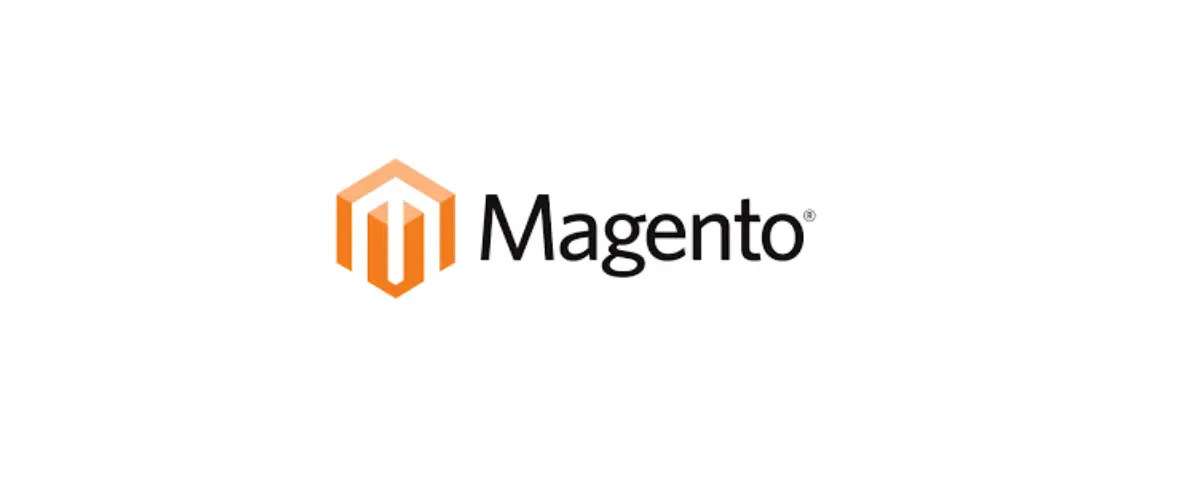If you ever thought that websites were only made by software developers and cost a lot of money, but one day you came to see that your friend’s business now had a website, it is the work of CMS marketing platforms. A CMS platform is a software application that allows users to build and manage a website without the need to code it from scratch or have coding knowledge.
With CMS platforms, you don’t need a software developer to build a website for you. Yes, websites are built by software developers, but that’s not the case for all of them. According to research, 62.8% of websites have opted for the CMS platform and WordPress is used by 43.3% of all the websites.
CMS makes it easy to create and manage your website and files yourself. To get started, you have to take a course on how to build a website from a reliable institute and I recommend Digital Marketing Skills Institute to learn how to build a website.
In this article, we will explore everything you need to know about CMS marketing in 2024.
What is a Content Management System (CMS)?
A CMS, short for content management system, is a program that assists with creating and organizing websites and files that are used on a website. It makes it easier for individuals without a background in software development or computer science to easily create their websites without having to learn coding languages and website design. CMS usually takes care of the back-end and front-end coding and allows the user to focus on designing the user interface and the pages that will make up the website.
What is CMS Marketing?
It involves the use of a CMS to create, manage, and give out content using different digital channels. In CMS marketing, businesses leverage the ability of a CMS platform to make their marketing efforts a lot easier.
Get 50% Discount to Master ALL Aspects of Digital Marketing That Can Earn You $2,500 - $5,000 a month (Even if you are a complete beginner!)
Our students that intentionally implement what they learn from our digital marketing course make back the entire course fee within a single month or more after completing our course because our course gives them many income generating options with unlimited earning potential with no age or location barrier. The best part is no technical skills are required.
An opportunity to change your lifestyle and make money working from anywhere in the world. The results our students get from our digital marketing course prove this could be applied to any market or country and that it is designed for any skill level and work background.
*By signing up, you agree to our privacy policy and terms of service.
They do this by creating the content, optimising it for search engines, scheduling, and publishing. They also assist in tracking performance afterwards. The goal of CMS marketing allow businesses to save time and improve their efficiency.
Why Use a Content Management System?
1. It makes content creation simpler
Users with no prior coding language knowledge find it easier to set up and navigate through websites created on CMS. They can upload media, change page layout, and even save blog posts without publishing. This saves a lot of time, as users don’t have to spend a lot of time coding to change the format of the content.
2. Content management and organization is improved
With a CMS, your team’s content management is improved. It allows for accessibility on the content page so everyone can see what the other person is editing. You can see if specific pages were added to the site. It also allows for organization to delegate tasks such as editing and admin. The editor can edit content but can’t publish it, while the admin can publish it.
3. Examine content performance and user behavior
CMS collect data on visitors who visit your website and the interactions they make on the site. It analyzes things like clicks, time spent, and bounce rates. This can help you identify content that is doing well and content that isn’t doing well. With this information, you can improve your content strategy and make better content in the future.
4. It helps improve SEO
CMS can help improve search engine optimization. It does this by assisting with optimized web pages, making it easier for search engines to discover the content. They also help optimize metadata, URL structure and other on-page elements.
5. It helps with personalization
CMS helps with personalization by developing content that targets specific users. This strategy leads to increased conversion rates and increased sales. With CRM, it is easier to design pages that create a personalized browsing experience depending on what your customers or users have viewed or searched for in the past.
6. It doesn’t need prior coding knowledge
If you’re a non-developer, you are definitely at an advantage here. CMS allows you to build your website without having to code. You don’t need to rely on developers to have a website. It saves you time, money and gives you total control over creating and managing the design and content of your website.
7. Security features
CMS comes with inbuilt features that help secure your website. Some of these features include SSL, custom CDN, and a web application firewall. This feature helps identify and defend websites against cyber threats like malware infections and hacking attempts. They also help ensure that the website’s data remains confidential and secure. CMS ensures a reduction in downtown and financial losses to businesses by ensuring the security of websites.
8. Content scheduling
CMS allows users to schedule content with just the click of a button. Some of this content includes blog posts, website pages, emails, and landing pages. Content scheduling allows a steady stream of fresh content to reach the audience through adequate planning and scheduling of content beforehand.
CMS also provides global reach through content scheduling. Marketers don’t have to stay up late to publish content manually. They can just schedule the content to be published at times that are convenient for their target audience.
How Does CMS Marketing Work?
CMS marketing uses a Content Management System (CMS) platform to create, manage, and distribute marketing content via different digital channels. Here’s how it usually works:
1. Content Creation
Marketers utilize the CMS platform to develop a wide range of material, such as web pages, blog posts, photos, videos, infographics, and more. They may design and format material using built-in editors or integrations with external tools that adhere to their branding and messaging standards.
2. Content Management
The CMS provides a single dashboard from which marketers can manage all aspects of their material, such as arranging it into categories or folders, scheduling its publishing, and assigning access to different team members. This makes it easy to track content assets and guarantee they are up-to-date.
3. Content Optimization
CMS platforms frequently contain SEO tools and capabilities that help marketers improve their content for search engines. This may include optimizing metadata, employing relevant keywords, and ensuring content is properly structured and presented to maximize visibility in search engine results pages (SERPs).
4. Multi-channel Distribution
Once content has been developed and optimized, marketers can utilize the CMS to share it via digital channels, including websites, blogs, social media platforms, email newsletters, and more. Many CMS platforms integrate with third-party tools and platforms to simplify the distribution process.
5. Performance Tracking
CMS solutions often offer analytics and reporting capabilities that enable marketers to monitor and analyze the performance of their content. They can use metrics like page views, engagement rates, and conversion rates to assess the efficiency of their content marketing initiatives and make data-driven decisions.
If you still don’t know how to create a website, why not attend our next digital marketing training to understand the fundamentals of online marketing and start building website for yourself and your clients?
CMS Marketing Platform Examples
1. WordPress
WordPress can be used by business owners and freelancers. According to w3tech, research shows that almost 43% of websites are made using WordPress. WordPress builds sites using the Gutenberg editor and can be customized using thousands of plugins.
Features
- It is simple to use.
- It is multilingual.
- It has easy media management.
- It is search engine optimization-friendly.
- It has an SSL certificate.
Pricing: it has a free plan and a paid pricing plan. Paid plans cost as little as $3 per month.
2. CMS Hub
CMS hub allows its users to create websites that are not just secure but are also optimized for such engines. It is run by HubSpot, and this allows you to collect your data from HubSpot. It is ideal for any type of business.
Features
- It has a drag-and-drop editor.
- It is SEO-recommended.
- It has premium hosting.
- It has modern themes.
Pricing: It has a free plan and a paid plan. Paid plans are $20 per month per seat.
3. Shopify
E-commerce marketers find Shopify to be the best-suited CMS platform. It is easy to use and has built-in customer reviews, blogging tools, and ready-to-pay options for customers. Shopify also comes with over 70 themes that you can use to change the appearance of your site.
Features
- Security.
- Site management.
- Customizable templates.
- Translation management.
Pricing: It has a paid plan that starts at $24 per month.
4. Drupal
Drupal is a CMS platform that is best suited for corporations and government agencies like NASA. It is very flexible and comes with over 47,000 modules that also have free themes. It can handle large chunks of data and large traffic. So if you’re organization has large trunks of data and traffic, consider using this.
Features
- It has multilingual translations.
- Has adequate security.
- Marketing automation.
- Personalization of the customer’s data.
Pricing: it is free.
5. Joomla
Joomla is similar to WordPress. It is an open source CMS. It is used by global companies and social networking websites.
Features
- It is search engine friendly
- Is mobile friendly
- It has unlimited designs
- It is multilingual
Pricing: The paid plan starts at $99 per year.
6. Magento
Magento is mostly used by e-commerce businesses. It is highly flexible and secure. It allows users to manage multiple stores. If you want to establish an online store, you should give Magento a try.
Features
- Customer personalization and segmentation.
- Automated email reminder.
- Secure payments get away.
- It is SEO-centered.
- It contains Tools for advertising and marketing
- He has fast loading time.
Pricing: pricing starts from $15,000 per month.
7. Wix
Wix provides cloud-based web development services, offering tools for creating HTML5 websites and mobile sites through online drag-and-drop editing. It allows users to build professional online presences with ease, offering customizable templates, design features, and the ability to add code for total design control. With over 250 million users worldwide, Wix is a popular choice for individuals and businesses looking to establish and grow their online presence effectively.
Features
- Online store
- Booking system
- Members area
- Blog integration
Pricing: It has a free plan and a paid plan. The paid plan starts at $9 per month.
8. Webflow
Webflow is the CMS platform for designers and marketers. It can be used for designing websites, landing pages, and blogs. Webflow also has a website hosting platform and a lot of in-built template designs.
Features
- It is SEO-friendly.
- Promote localization.
- It is scalable.
- Security and compliance.
Pricing: It has a free starter plan and a paid plan. The paid plan starts at $14 per month.
9. Site core
Site core allows for the creation of personalized sites that meet customer specifications. It provides a beautiful customer experience and is used mainly by enterprise companies.
Features
- It has multilingual tools.
- Highly personalized content.
- Marketing automation.
- Security and workflow.
- Versioning.
Pricing: to get pricing information, contact the site core.
10. Optimizely
Optimizely is best known as a split testing tool. It is also a CMS platform and allows users to create and share content. Optimizely is suitable for large enterprises and uses the WYSIWYG experience.
Features
- Personalization.
- SEO friendly.
- Marketing automation.
- Translation.
Pricing: Contact Optimizely for pricing.
How to Choose a CMS Platform
When selecting a CMS platform, consider the following criteria:.
1. Ease of Use
Look for a CMS platform that is straightforward to use, with a simple interface and navigation. This will make it easier for you to produce, amend, and manage website content without any technological experience.
2. Flexibility and Customization
Select a CMS platform that provides flexibility and customization choices to fit your individual requirements. Look for adjustable templates, plugins, and themes that will allow you to personalize your website and tailor it to your branding and design preferences.
3. Scalability
Think about how scalable the CMS platform is and whether it can grow with your business over time. Look for a platform that has scalability options, such as the capacity to add new features, scale up resources, and handle increased traffic and content volume.
4. Support and Community
Determine whether the CMS platform has available support resources as well as a strong community of users and developers. Look for documentation, tutorials, forums, and customer service channels to help you troubleshoot problems and obtain help as needed.
5. Security
When selecting a CMS platform, make security a top priority, especially if your website handles sensitive information or transactions. Look for platforms that have strong security measures, regular upgrades, and adhere to industry norms and regulations.
Conclusion
CMS marketing provides a powerful tool for organizations to manage their online presence and boost their marketing activities. Businesses can use Content Management Systems (CMS) to streamline their content production, management, and distribution processes, thereby improving their digital marketing tactics.
Businesses can use CMS platforms to create compelling and relevant content for their target audience without requiring substantial expertise in technology. CMS solutions’ ease of use and versatility enable marketers to keep a consistent publishing schedule, optimize content for search engines, and track performance indicators to determine success.
FAQS
Features of a Content Management System (CMS)
1. User-Friendly Interface: A CMS should offer a dashboard for managing content production, distribution, scheduling, and installing plugins.
2. Modules and Page Management: CMS themes or modules provide a consistent brand image and standard navigation across websites, allowing for easy page creation
3. Content Editor/Rich Text Editor: Competent content editors within a CMS enable businesses to publish various content types efficiently.
4. Built-In SEO Tools: A CMS with built-in SEO capabilities helps optimize content for search engines by providing tools for adding meta descriptions, alt tags, and generating sitemaps to improve search engine rankings and visibility
CMS vs Website Builder
CMS (Content Management System) and website builders are both tools for creating and managing websites, but there are some significant differences.
A content management system (CMS) is a software application that enables users to create, update, and publish material on websites. It offers a platform for organizing a variety of material types, including text, photographs, videos, and documents. CMS platforms such as WordPress, Joomla, and Drupal provide flexibility and customization choices, making them suitable for creating complicated websites with specialized needs.
Website builders are easy-to-use tools that enable people and small businesses to construct websites without coding or technical knowledge. Website builders such as Wix, Squarespace, and Weebly provide drag-and-drop interfaces and pre-designed templates, allowing users to swiftly customize their websites. While website builders are simple and easy to use, they may have fewer customization and scalability options than CMS platforms.
More Resources
How To Develop A Content Marketing Strategy | A Super 7-Step Plan
Content Marketing For Startups – The 7 Most-Effective Strategies For Awesome Results








